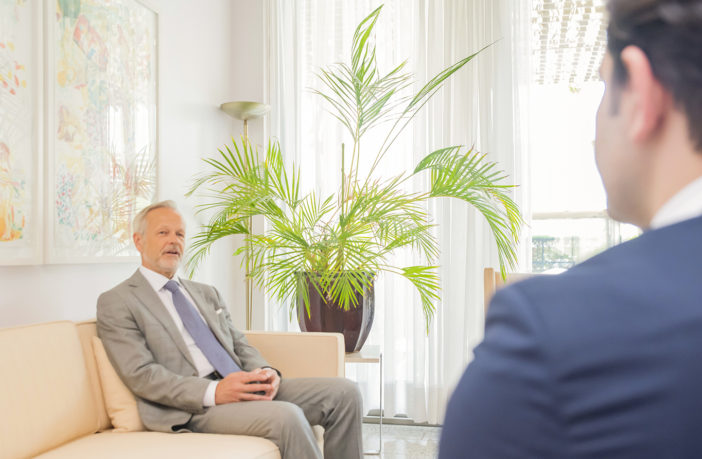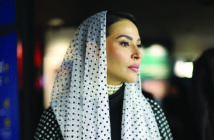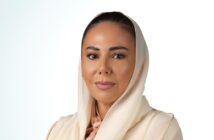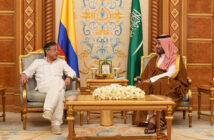Discussion with Ambassador of Finland Antti Rytovuori
According to Gallup World Happiness Report 2021, Finland is the happiest country in the world, while Saudi Arabia is considered number one in the Middle East. What do you think that ranks both countries number one?
Finland is scoring high in international comparisons for quality of life, freedom, and gender equality, with little corruption, crime, and pollution. In addition, a high level of mutual trust amongst its citizens is one of the reasons why Finland is topping the World Happiness report again.
I think well-functioning healthcare and citizens’ confidence in their government during the COVID-19 pandemic have contributed to the ranking of both Finland and Saudi Arabia. In my opinion, Saudi Arabia’s leadership deserves recognition for the thoughtful and tactful approach it has handled the situation. Moreover, perceived honesty, welfare, good health, and generosity explain the ranking of both countries.
In 2020, Helsinki International Schools and EduGuide for Education and Training signed agreements to expand their partnership in Jeddah and Dammam by 2021. What is the status of this initiative, and what makes the Finnish education system so special?
Finnish education expertise continues to attract the attention of school systems around the world. Finnish education system strives for better, more equitable, and sustainable learning outcomes in a new era of education driven by the digital wave that swept the sector during the COVID-19 pandemic.
The so-called HEI School has already opened in Riyadh in partnership with a Saudi company EduGuide. However, the plans for opening schools in Jeddah and Dammam have been slightly delayed due to the current pandemic. In addition, there are many other initiatives for cooperation between Saudi Arabia and Finland in the education sector. The latest new project is online training for Saudi teachers on universal physical education and physically active learning process in the classroom. This training aims to provide teachers tools and methods to make a school day as active as possible.
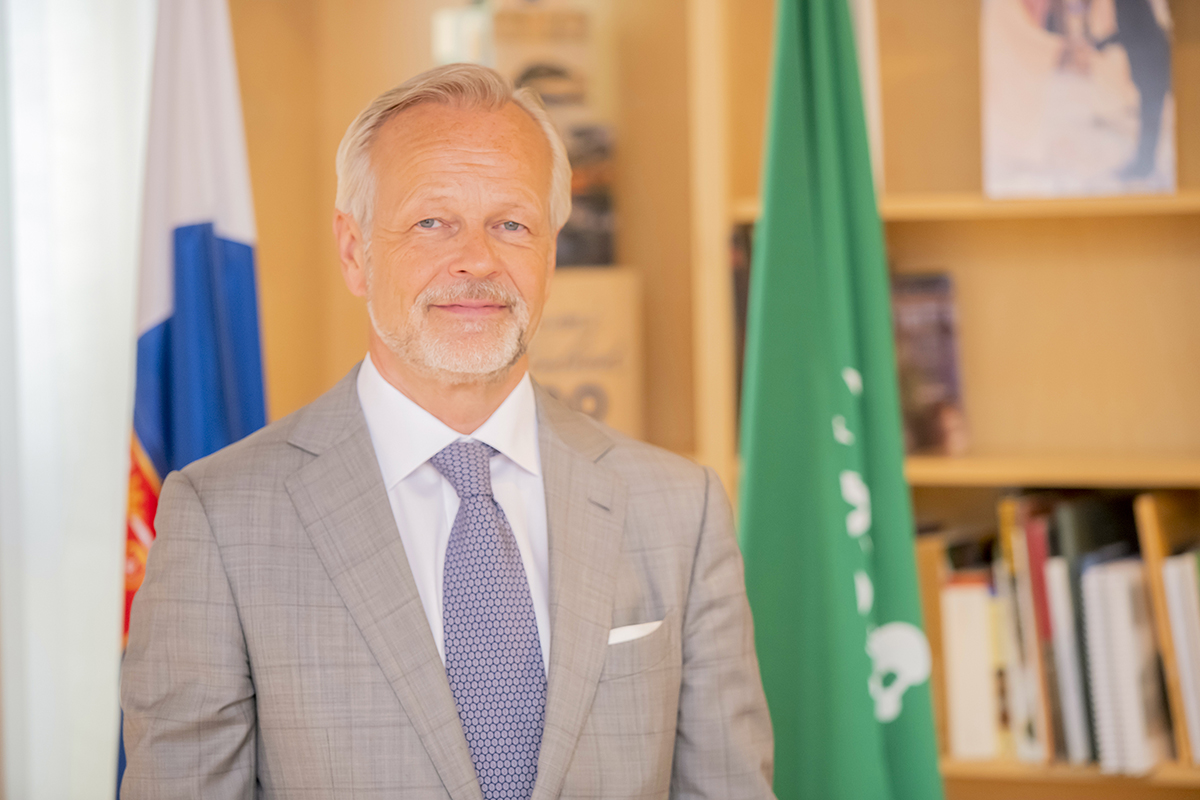
Diplomatic relations between Saudi Arabia and Finland have a history of over five decades. What will be your remarks on the progress made so far? Where do you see gaps that still need to be addressed?
While both Saudi Arabia and Finland, as well as the political landscape around them, develop constantly, the two governments should re-invent and adapt the relations and cooperation accordingly. The past relations and trust created between the countries are a strong foundation to build on. Nowadays, the political contacts at the ministerial level are more frequent than ever. The foreign ministers of Saudi Arabia and Finland meet regularly, both virtually and physically. However, I believe that there are still vast opportunities to enhance further the relations between the two countries in many sectors.
One of the central goals of Saudi Vision 2030 is an oil-diversified economy. What would you consider as a main Saudi asset beyond the oil?
Renewable energy technologies are viewed as a critical means of reducing power sector-related emissions. The advantage of Saudi Arabia is its excellent conditions for the sustainable energy sector, particularly for solar energy, and in coastal regions for wind energy. Saudi Arabia could become a leading exporter of clean energy.
In addition, the potential of Saudi Arabia in the mining and minerals sectors is also very interesting for Finland, as Finland is a leading supplier of technologies for the mining and processing industry. On the other hand, tourism in the Kingdom has much untapped potential. However, more importantly, than those already mentioned, I believe that Saudi Arabia has tremendous potential coming from a well-educated young population in ICT and all other knowledge-based sectors.
Recently you have met with Mr. Ziyad M Alshiha, CEO of Saudi Investment Recycling Company. What will be your remarks on recycling, waste-to-energy, and circular economy for the two countries?
Although Saudi Arabia has ambitious plans to develop waste management, over 90% of all waste is currently discharged into landfills. The goal is to recycle or convert to energy 82% of all the waste by 2035. For municipal waste, the agenda and targets are even more ambitious.
In comparison, at present, more than 90% of all the waste is recycled or converted to energy in Finland. We do have many solutions to offer for waste sorting and waste treatment. Hence, waste management is another area where Finland wants to cooperate with Saudi Arabia. It is also important to produce economic incentives for recycling through effective regulation, waste pricing, and creating markets for recycled raw materials.
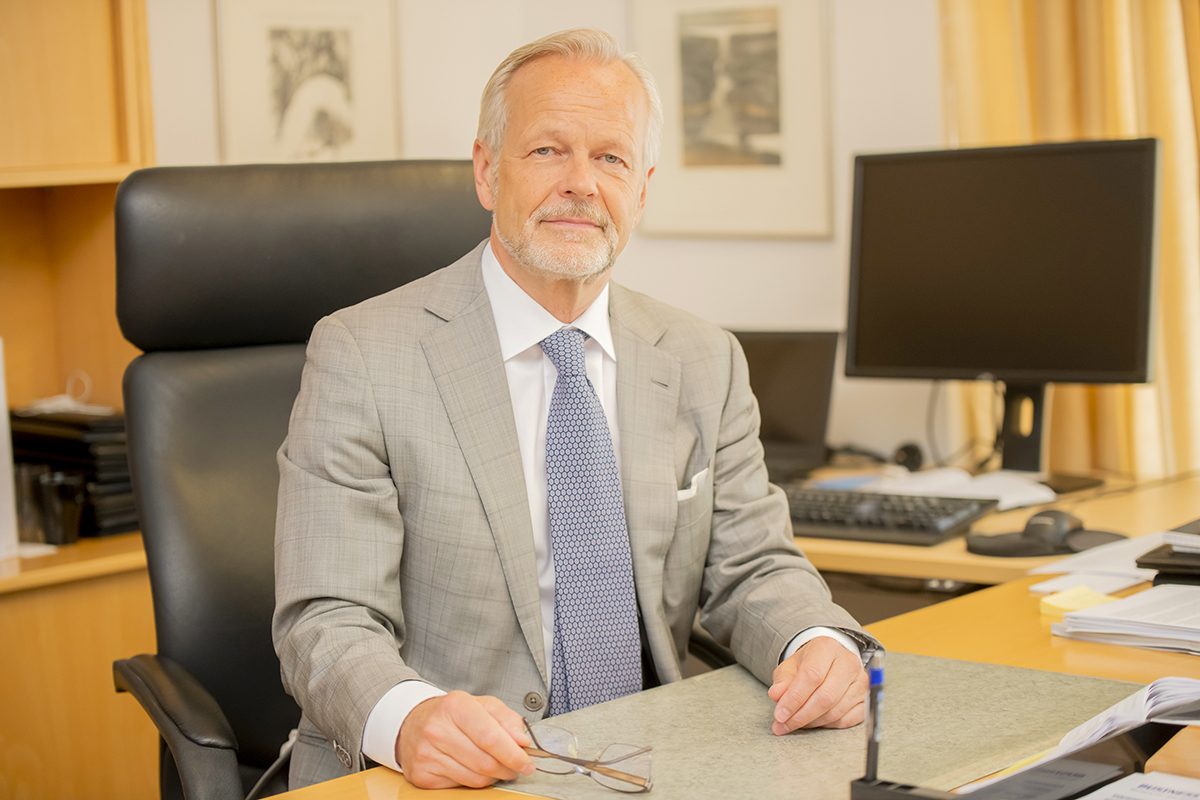
According to the UN COMTRADE database, in 2020, Finland’s exports to Saudi Arabia was $387.52 million. What trade sectors do you think have the potential for further growth?
With the growth trends and economic diversification in Saudi Arabia, the potential in many sectors is huge. I think the prospects are extremely promising in mining technology. Finland is one of the leading mining technology countries, and Saudi Arabia has very ambitious plans to develop its mining and mineral processing industries.
Information and communication technologies (ICT), as well as digitalization, are additional areas for collaboration. Nokia and many other Finnish companies are constantly bringing innovative solutions to the market. One could say that innovation is encoded in the Finnish DNA. The Finnish ICT companies are ready to be part of Saudi Arabia’s digital transformation. Last but not least, Finland also has many effective solutions to offer in circular economy and green technologies.
On the subject of multilateral cooperation. What will be your reflection on the concept of the Diplomatic Quarter (DQ)? How does this allocation of foreign missions contribute to bilateral relations with Saudi Arabia and multilateral cooperation?
Certainly, the closeness of the other missions makes it easier to meet with colleagues, contributing to a rich social life. As a diplomat, I also appreciate living in a pleasant and safe area such as the DQ.
What is the daily routine of the Ambassador of Finland in the DQ? Any favorite places?
The walking track on the edge of the Wadi in the DQ is my favorite place for early morning walks. Otherwise, I would say my daily routines as an ambassador are meetings, messaging, reading, and writing.

